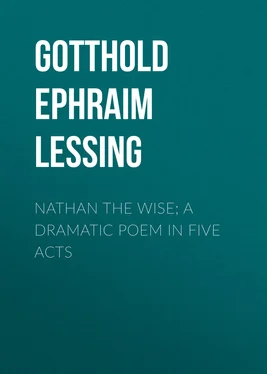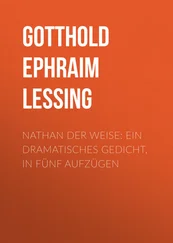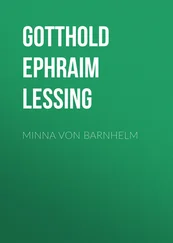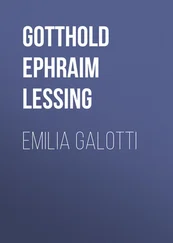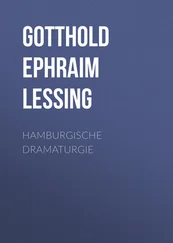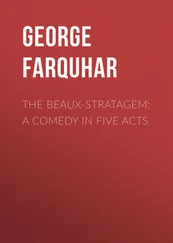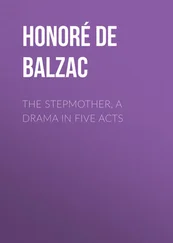TEMPLAR
FRIAR
To send a letter by your hand.
TEMPLAR
By me?
I am no carrier. And were that an office
More meritorious than to save from burning
A Jewish maid?
FRIAR
So it should seem; must seem—
For, says the patriarch, to all Christendom
This letter is of import; and to bear it
Safe to its destination, says the patriarch,
God will reward with a peculiar crown
In heaven; and of this crown, the patriarch says,
No one is worthier than you—
TEMPLAR
FRIAR
For none so able, and so fit to earn
This crown, the patriarch says, as you.
TEMPLAR
FRIAR
The patriarch here is free, can look about him,
And knows, he says, how cities may be stormed,
And how defended; knows, he says, the strengths
And weaknesses of Saladin’s new bulwark,
And of the inner rampart last thrown up;
And to the warriors of the Lord, he says,
Could clearly point them out;—
TEMPLAR
And can I know
Exactly the contents of this same letter?
FRIAR
Why, that I don’t pretend to vouch exactly—
’Tis to King Philip: and our patriarch—
I often wonder how this holy man,
Who lives so wholly to his God and heaven,
Can stoop to be so well informed about
Whatever passes here—’Tis a hard task!
TEMPLAR
FRIAR
Knows, with great precision,
And from sure hands, how, when, and with what force,
And in which quarter, Saladin, in case
The war breaks out afresh, will take the field.
TEMPLAR
FRIAR
Yes; and would acquaint King Philip,
That he may better calculate, if really
The danger be so great as to require
Him to renew at all events the truce
So bravely broken by your body.
TEMPLAR
So?
This is a patriarch indeed! He wants
No common messenger; he wants a spy.
Go tell your patriarch, brother, I am not,
As far as you can sift, the man to suit him.
I still esteem myself a prisoner, and
A templar’s only calling is to fight,
And not to ferret out intelligence.
FRIAR
That’s much as I supposed, and, to speak plainly,
Not to be blamed. The best is yet behind.
The patriarch has made out the very fortress,
Its name, and strength, and site on Libanon,
Wherein the mighty sums are now concealed,
With which the prudent father of the sultan
Provides the cost of war, and pays the army.
He knows that Saladin, from time to time,
Goes to this fortress, through by-ways and passe
With few attendants.
TEMPLAR
FRIAR
How easy ’twere
To seize his person in these expeditions,
And make an end of all! You shudder, sir—
Two Maronites, who fear the Lord, have offer
To share the danger of the enterprise,
Under a proper leader.
TEMPLAR
And the patriarch
Had cast his eye on me for this brave office?
FRIAR
He thinks King Philip might from Ptolemais
Best second such a deed.
TEMPLAR
On me? on me?
Have you not heard then, just now heard, the favour
Which I received from Saladin?
FRIAR
TEMPLAR
FRIAR
The patriarch thinks—that’s mighty well—
God, and the order’s interest—
TEMPLAR
Alter nothing,
Command no villainies.
FRIAR
No, that indeed not;
But what is villainy in human eyes
May in the sight of God, the patriarch thinks,
Not be—
TEMPLAR
I owe my life to Saladin,
And might take his?
FRIAR
That—fie! But Saladin,
The patriarch thinks, is yet the common foe
Of Christendom, and cannot earn a right
To be your friend.
TEMPLAR
My friend—because I will not
Behave like an ungrateful scoundrel to him.
FRIAR
Yet gratitude, the patriarch thinks, is not
A debt before the eye of God or man,
Unless for our own sakes the benefit
Had been conferred; and, it has been reported,
The patriarch understands that Saladin
Preserved your life merely because your voice,
Your air, or features, raised a recollection
Of his lost brother.
TEMPLAR
He knows this? and yet—
If it were sure, I should—ah, Saladin!
How! and shall nature then have formed in me
A single feature in thy brother’s likeness,
With nothing in my soul to answer to it?
Or what does correspond shall I suppress
To please a patriarch? So thou dost not cheat us,
Nature—and so not contradict Thyself,
Kind God of all.—Go, brother, go away:
Do not stir up my anger.
FRIAR
I withdraw
More gladly than I came. We cloister-folk
Are forced to vow obedience to superiors.
[Goes.
Templar and Daya
DAYA
The monk, methinks, left him in no good mood:
But I must risk my message.
TEMPLAR
Better still
The proverb says that monks and women are
The devil’s clutches; and I’m tossed to-day
From one to th’ other.
DAYA
Whom do I behold?—
Thank God! I see you, noble knight, once more.
Where have you lurked this long, long space? You’ve not
Been ill?
TEMPLAR
DAYA
TEMPLAR
DAYA
We’ve all been anxious
Lest something ailed you.
TEMPLAR
DAYA
Have you been journeying?
TEMPLAR
DAYA
TEMPLAR
DAYA
Our Recha’s father too is just returned,
And now may Recha hope at last—
TEMPLAR
DAYA
For what she often has requested of you.
Her father pressingly invites your visit.
He now arrives from Babylon, with twenty
High-laden camels, brings the curious drugs,
And precious stones, and stuffs, he has collected
From Syria, Persia, India, even China.
Читать дальше
